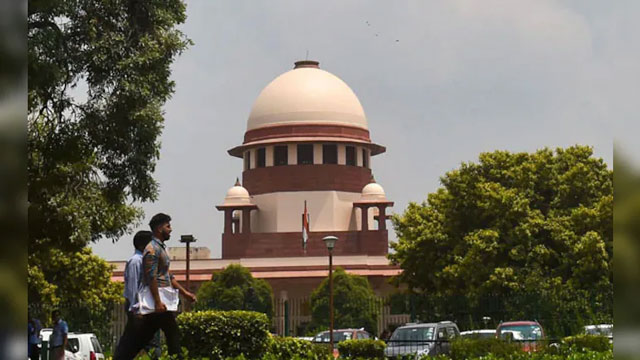Daijiworld Media Network - Bhopal
Bhopal, Oct 14: The Madhya Pradesh government has filed a 15,000-page affidavit in the Supreme Court seeking to increase OBC reservation in the state from 14% to 27%, justifying the move with data highlighting persistent caste-based discrimination, economic deprivation, and gender inequality.
The affidavit opens with a historical narrative, praising ancient India as a casteless, merit-based society disrupted by foreign invasions, yet later notes that caste-based exploitation has contributed to economic decline—reflecting an internal contradiction in the government’s argument.

Empirical data forms the backbone of the state’s defence. A confidential 2023 survey conducted by Dr BR Ambedkar Social Science University in Mhow, covering nearly 10,000 families across rural and urban Madhya Pradesh, revealed widespread caste discrimination.
Key findings include:
• Social Exclusion: 56% of families reported standing when upper-caste individuals pass by; 3,797 families said untouchability persists; 3,763 families said they are not allowed to eat with upper-caste members; 3,238 families reported denial of priestly services at home.
• Religious Restrictions: 57% said their caste members cannot become priests or heads of religious institutions, and 51% were denied access to religious education.
• Education & Occupation: 76% had not studied beyond Class 12, only 15.6% were graduates, and 8.1% postgraduates. About 94% of families relied on loans for weddings, farming, or children’s education. Nearly half blamed industrialisation and social prejudice for loss of livelihoods.
• Gender Inequality: More than 50% of OBC women work as daily wage or agricultural labourers, making them particularly vulnerable.
The affidavit recommends sweeping structural reforms, including 35% reservation for OBCs in education and government jobs, and 50% reservation for OBC women in welfare schemes such as Ladli Behna and Ladli Beti. It underscores that social justice cannot remain gender-blind when women are disproportionately affected within marginalised communities.
The state argues that the proposed increase is justified under “extraordinary circumstances,” noting that OBCs constitute over half of Madhya Pradesh’s population yet remain underrepresented in government employment and educational institutions.
The affidavit also cites frequent incidents of caste discrimination in Madhya Pradesh, including a recent case in Damoh where a young OBC man was forced to wash the feet of a Brahmin over an AI-generated image, highlighting the ongoing reality of caste hierarchies despite constitutional safeguards.
Madhya Pradesh is pushing for this reservation hike despite it potentially breaching the 50% cap imposed by the Supreme Court, asserting that the persistent deprivation of OBCs in social, economic, and educational spheres constitutes “extraordinary circumstances” warranting the move.